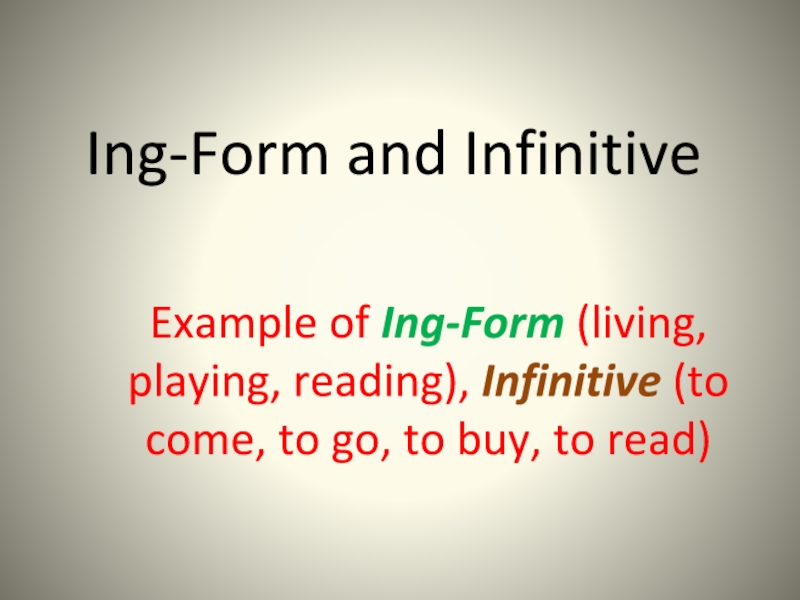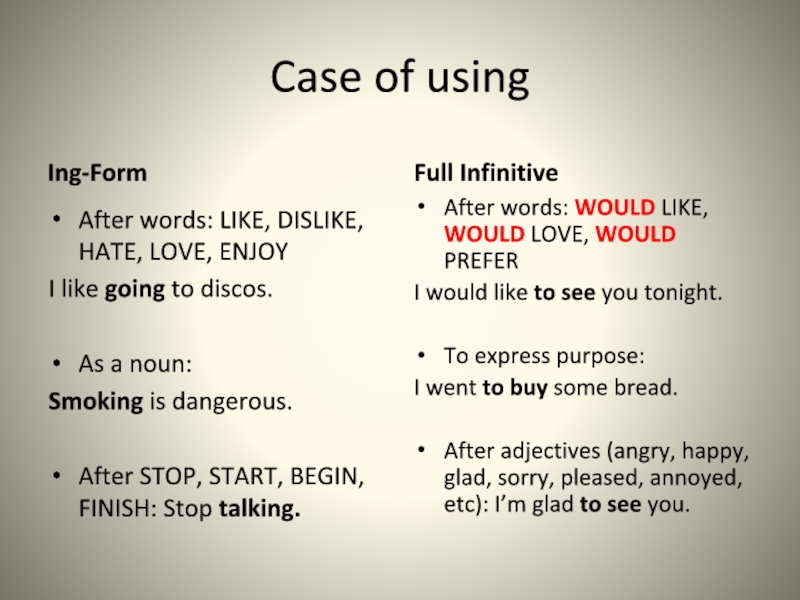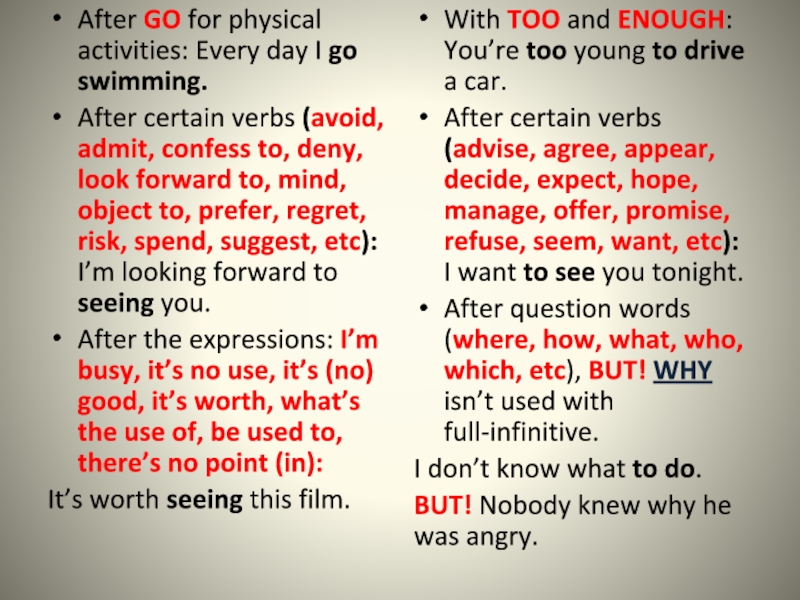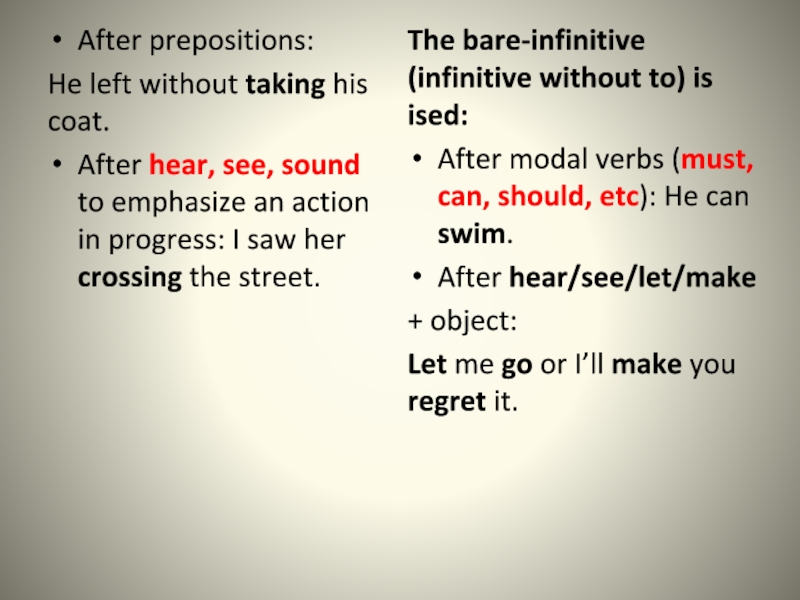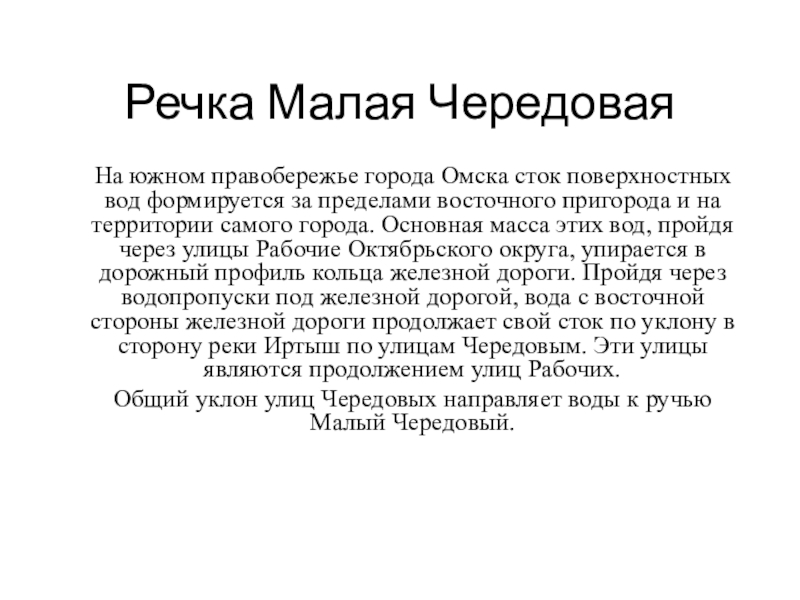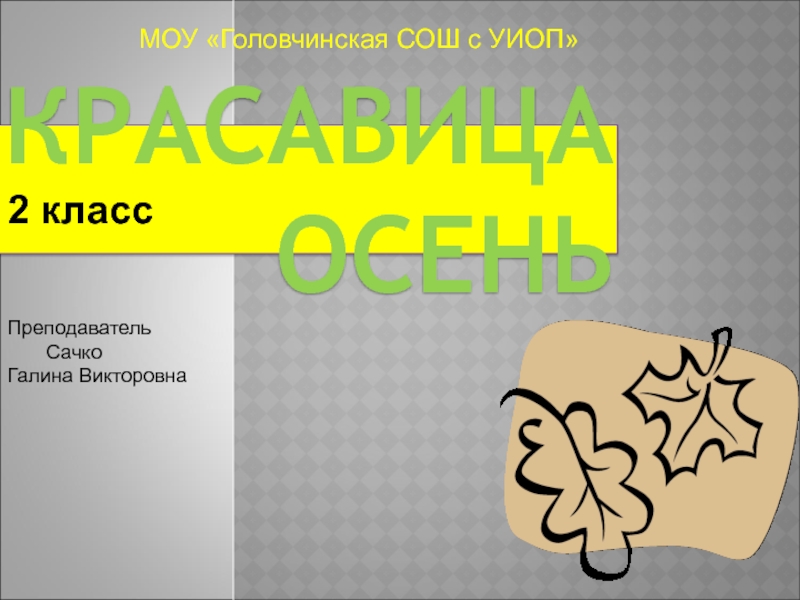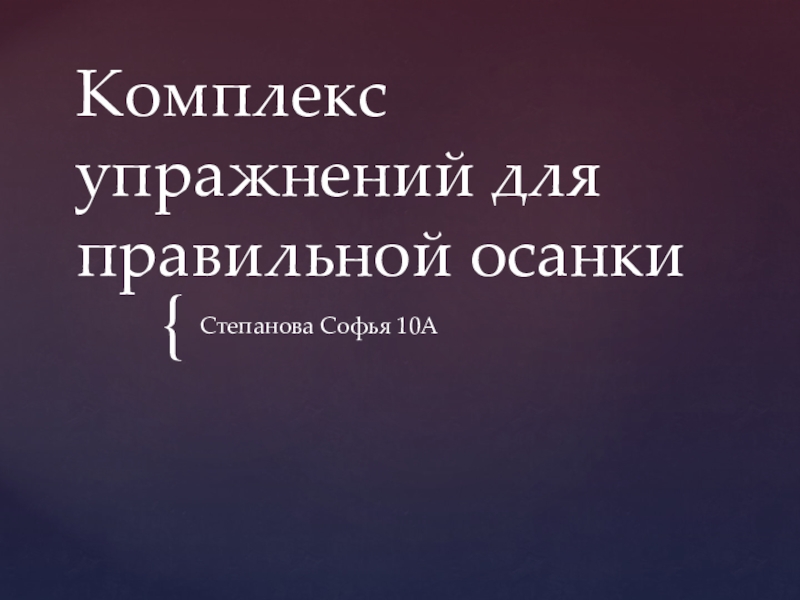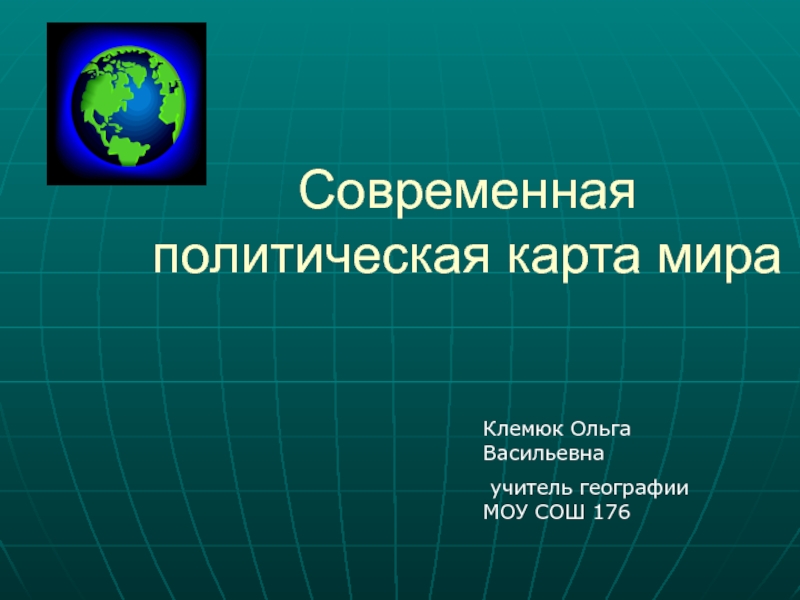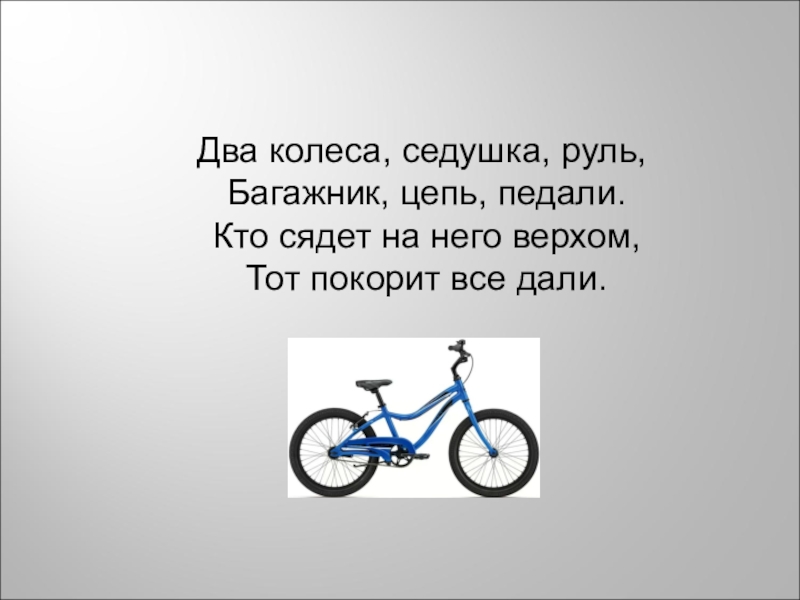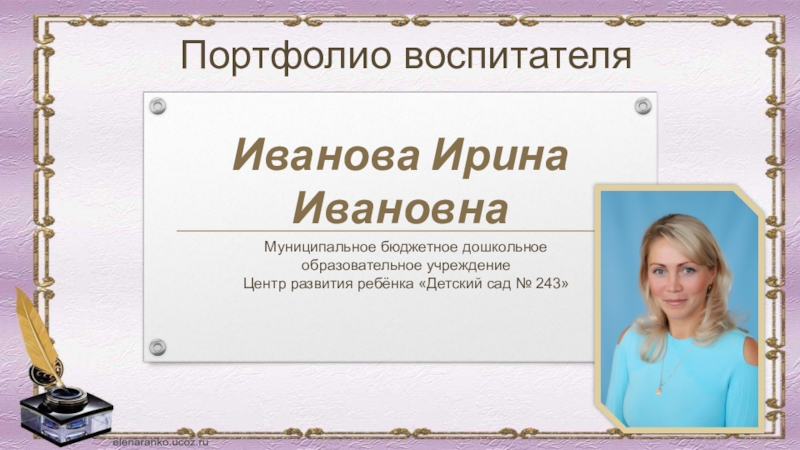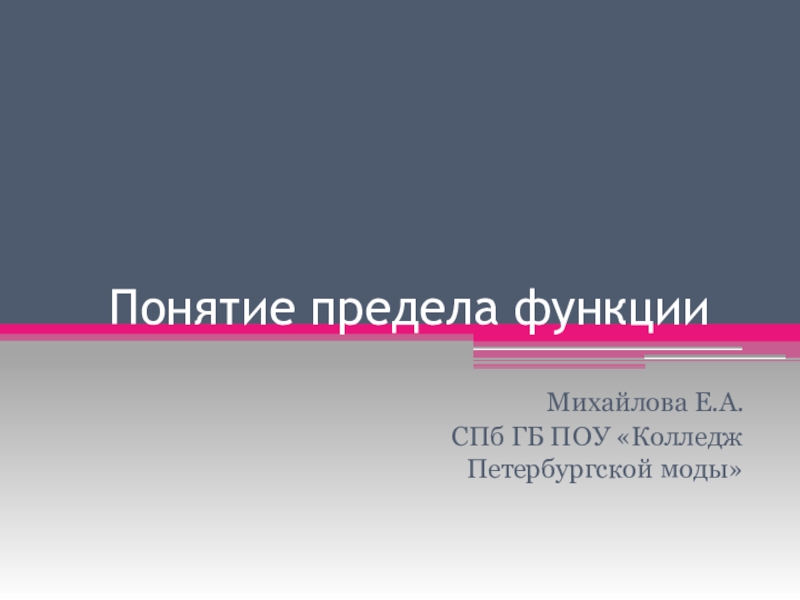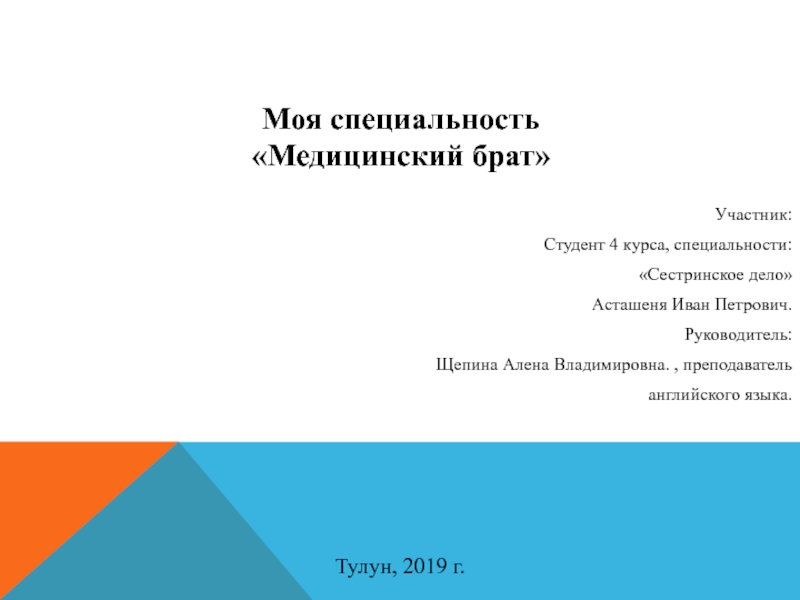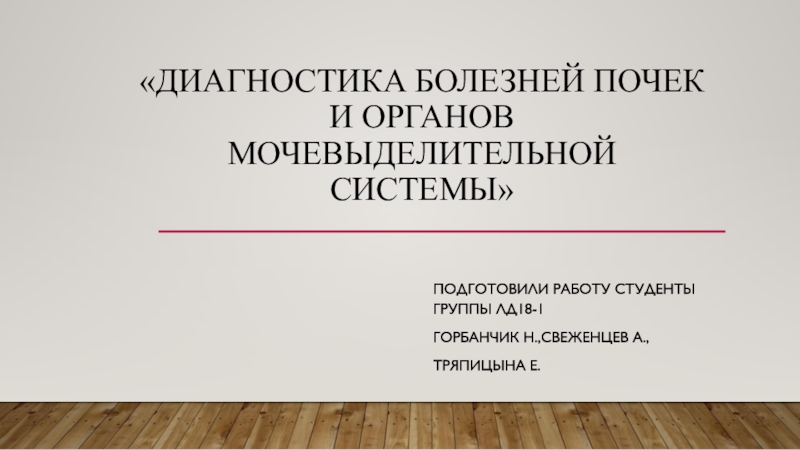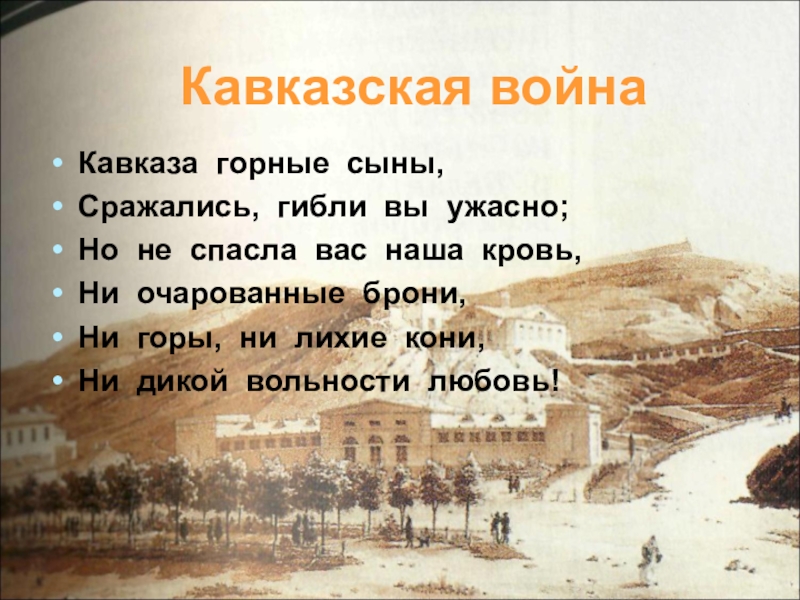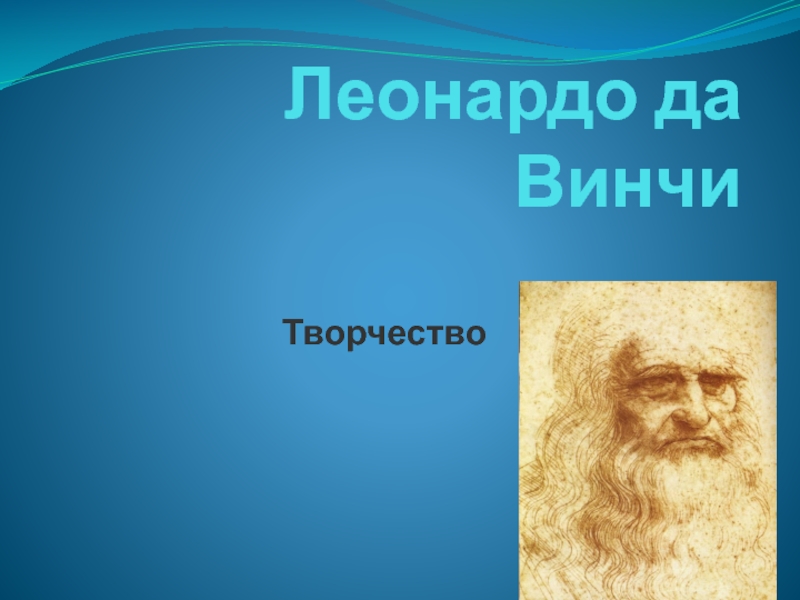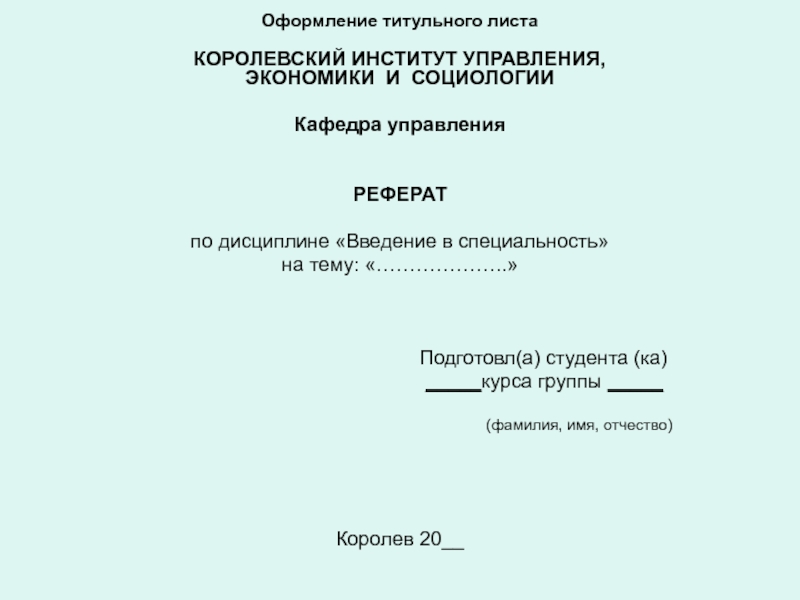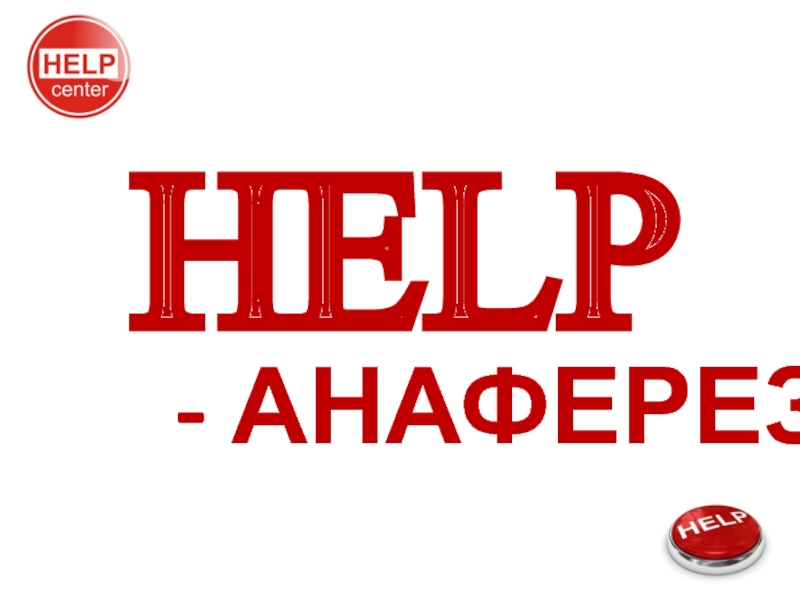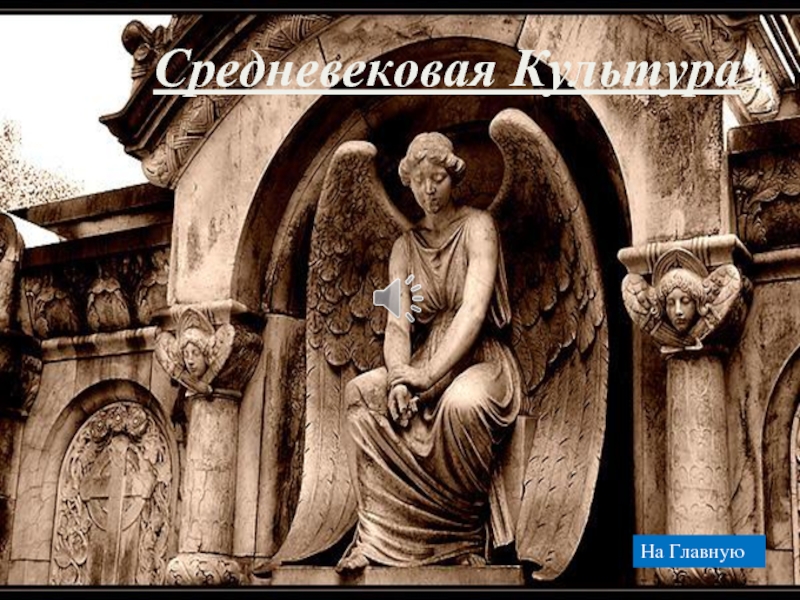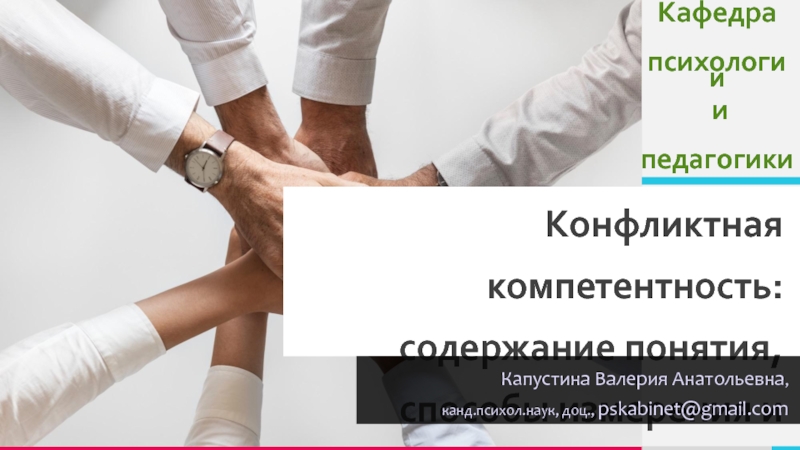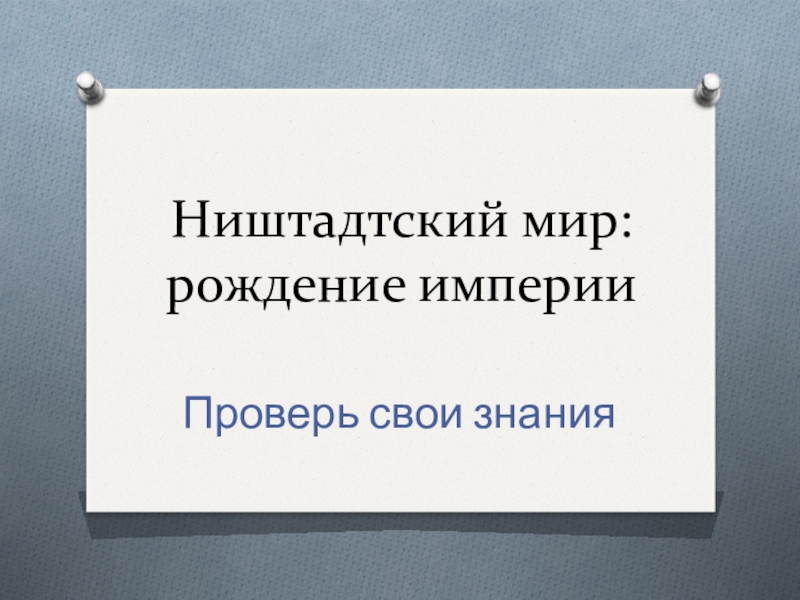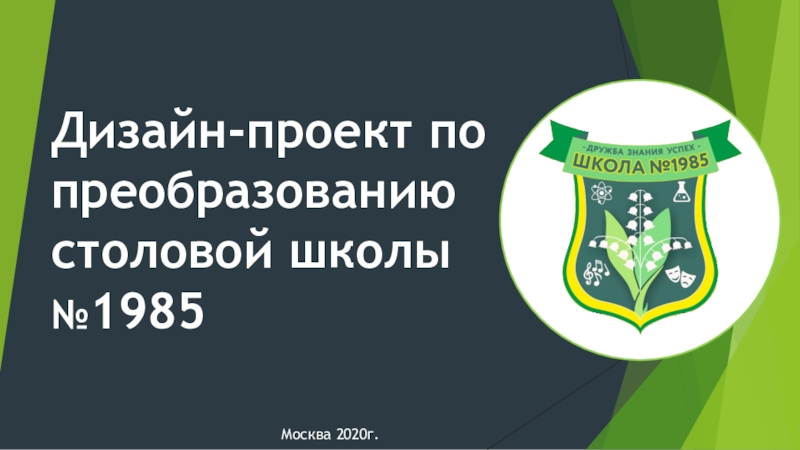Разделы презентаций
- Разное
- Английский язык
- Астрономия
- Алгебра
- Биология
- География
- Геометрия
- Детские презентации
- Информатика
- История
- Литература
- Математика
- Медицина
- Менеджмент
- Музыка
- МХК
- Немецкий язык
- ОБЖ
- Обществознание
- Окружающий мир
- Педагогика
- Русский язык
- Технология
- Физика
- Философия
- Химия
- Шаблоны, картинки для презентаций
- Экология
- Экономика
- Юриспруденция
Ing -Form and Infinitive
Содержание
Слайды и текст этой презентации
Слайд 1Ing-Form and Infinitive
Example of Ing-Form (living, playing, reading), Infinitive (to
come, to go, to buy, to read)
Слайд 2Case of using
Ing-Form
After words: LIKE, DISLIKE, HATE, LOVE, ENJOY
I like
going to discos.
As a noun:
Smoking is dangerous.
After STOP, START,
BEGIN, FINISH: Stop talking.Full Infinitive
After words: WOULD LIKE, WOULD LOVE, WOULD PREFER
I would like to see you tonight.
To express purpose:
I went to buy some bread.
After adjectives (angry, happy, glad, sorry, pleased, annoyed, etc): I’m glad to see you.
Слайд 3After GO for physical activities: Every day I go swimming.
After
certain verbs (avoid, admit, confess to, deny, look forward to,
mind, object to, prefer, regret, risk, spend, suggest, etc): I’m looking forward to seeing you.After the expressions: I’m busy, it’s no use, it’s (no) good, it’s worth, what’s the use of, be used to, there’s no point (in):
It’s worth seeing this film.
With TOO and ENOUGH: You’re too young to drive a car.
After certain verbs (advise, agree, appear, decide, expect, hope, manage, offer, promise, refuse, seem, want, etc): I want to see you tonight.
After question words (where, how, what, who, which, etc), BUT! WHY isn’t used with full-infinitive.
I don’t know what to do.
BUT! Nobody knew why he was angry.
Слайд 4After prepositions:
He left without taking his coat.
After hear, see,
sound to emphasize an action in progress: I saw her
crossing the street.The bare-infinitive (infinitive without to) is ised:
After modal verbs (must, can, should, etc): He can swim.
After hear/see/let/make
+ object:
Let me go or I’ll make you regret it.
